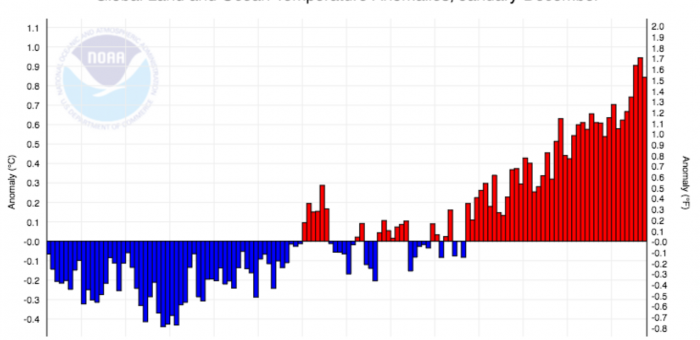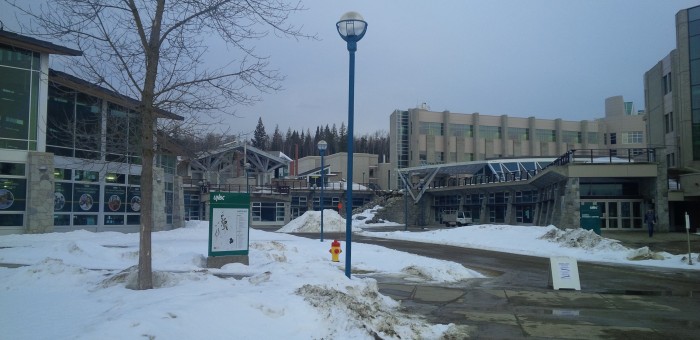Issues Blog
Active transportation input invited from public
Public input is sought as part of the BC Government’s ongoing community consultation on active transportation. This is an important part of the work done by the BC Green Caucus for the CleanBC initiative. Started on March 1, 2019, a new online question will be posted every two weeks. The online engagement will be open until April 15, 2019 at 4pm. Feedback received will result in a report that will be made publicly available.
This province-wide consultation is an opportunity for British Columbians to provide input into ways to make our communities more livable, with CleanBC investments that will change how we work, live and get around. The input received on active transportation will assist in providing a provincial framework to advance active transportation throughout the province.
There are several ways you can participate in the conversation about active transportation until April 15. In addition to the online discussion forum about active transportation, you can submit your comments by email to activetransportation@gov.bc.ca
A formal stakeholder submission, with established criteria and guidelines, is also underway.
You can find out more and how you can participate at CleanBC Active Transportation.
I hope you will join in this conversation and other opportunities to participate and give feedback on topics related to CleanBC. Regular updates are also available to those who wish to receive them.
Statement on the School Strike for Climate
Today at the BC Legislature I had the distinct honour to witness more than a thousand youth support Nobel Peace Prize Nominee Greta Thunberg and the school climate strike. Below I reproduce the press release that the BC Green Party released in support of this event that I attended. As you might imagine, the incredible youth participating in this student strike are a wonderful inspiration for me and they certainly serve as hope for the future.
Media Release
B.C. Green Caucus statement on the School Strike for Climate
For immediate release
March 15, 2019
 VICTORIA, B.C. – Inspired by the school strikes of Nobel Peace Prize Nominee Greta Thunberg, hundreds of thousands of children and youth around the world are striking today for climate action.
VICTORIA, B.C. – Inspired by the school strikes of Nobel Peace Prize Nominee Greta Thunberg, hundreds of thousands of children and youth around the world are striking today for climate action.
“Our children are telling us that it is time to treat this crisis as a crisis, and they are right,” said Andrew Weaver, leader of the B.C. Greens. “I am humbled and honoured to stand with the world’s children and youth as they demand political action on climate change.
“All of the science is pointing to the fact that we are fast running out of time to avoid global catastrophe, and yet around the world political leaders are failing to consider the existential threat that we face. To quote Greta Thunberg, we need to focus on what needs to be done rather than what is politically possible.”
“The decisions we make today have lasting impacts,” said Sonia Furstenau, B.C. Green MLA for Cowichan Valley. “Our young people may not be able to vote, but their voices are strong and we have a moral, ethical, and political responsibility to listen to them.
“We are incredibly proud of the CleanBC plan and how it will shape our province in the years to come. But as our children are pointing out today, we need to do much, much more. I was grateful to join today’s climate strike, these kids and young people inspire me to keep fighting for a just future.”
-30-
Media contact
Macon McGinley, Press Secretary
+1 250-882-6187 |macon.mcginley@leg.bc.ca
British Columbians deserve an independent public inquiry into money laundering
Below I reproduce my opinion piece on the need for a public inquiry into money laundering that was published in the Vancouver Sun today.
Vancouver Sun Letter
B.C. has been the victim of organized crime for more than a decade and at least two of our governments have known about money laundering operations. It is time for action on behalf of British Columbians.
In recent months, we have seen revelations that money laundering is extensive and pervasive in B.C. Last year, the G7’s Financial Action Task Force, which identifies threats to international order, reported that $1 billion a year is funnelled through B.C. casinos. The provincial government admitted it was not fully aware of what had been going on.
Multiple whistleblowers have come forward to expose wrongdoing and we have learned that the initial estimates of money laundering were staggeringly low. Indeed, the attorney general announced in January that as much as $2 billion of dirty money flowed through B.C.’s casinos and housing market in a single year. We know now that this issue is directly tied to the opioid crisis, which has taken so many lives. This underground industry is directly linked to the more than 1,400 people who died due to opioid overdoses in B.C. last year. Money laundering has also affected our housing market, contributing to skyrocketing housing prices.
People are losing trust in government. That cannot continue.
How can this level of crime exist without punishment or even knowledge? These unanswered questions are precisely why we have a duty to act quickly and decisively to get to the heart of what has unfolded and how we can address it.
We need a public inquiry.
An inquiry functions outside of partisan influence or criminal jurisdiction. Like the Charbonneau Commission in 2011, public inquiries can supplement criminal charges with real, actionable recommendations to identify, reduce and prevent such events from reoccurring. That is something that criminal charges are unable to address. In other words, it is about more than getting to the bottom of who is guilty, it is about changing the toxic environment that allowed these systemic abuses to occur in order to safeguard the public interest going forward.
B.C.’s international reputation as a haven for money laundering is now known, not only to international criminal networks but also to governments and citizens across the world, with opinion pieces hitting the pages of majors newspapers like the Washington Post. The “Vancouver model” has become synonymous with international organized crime. Our reputation is in tatters.
More than 76 per cent of British Columbians support a public inquiry. The cities of Vancouver, Victoria and Richmond, and the B.C. Government and Service Employees’ Union have all formally called for an inquiry.
While an inquiry would cost millions and take years to complete, the costs that have been carried by our province for years are far greater. The issue hints at corruption and a culture of silence condoned at the highest levels. An inquiry must be taken out of the hands of politicians and given independence to do its work.
Two weeks ago, I called on the provincial government to initiate a public inquiry into money laundering but they not committed to taking this crucial step. Money laundering was able to invade our province and the public deserves full answers and a clear path forward to ensure that we root it out. That is why I and the entire B.C. Green caucus will continue to insist that we get an independent public inquiry into money laundering in the province.
Progress towards creating 2900 new tech-related spaces in postsecondary institutions
Budget estimate debates for the Ministry of Advanced Education were held yesterday. I took the opportunity to ask the Minister about government’s progress towards creating the promised 2,900 additional tech-related spaces in public post-secondary institutions. This was supposed to result in 1,000 additional grads per year by 2023.
Below I reproduce the text and video of the exchange. As you will see from the response, I am pleased that the government appears to be on track to reach this target.
Video of Exchange
Text of Exchange
A. Weaver: Thank you. I appreciate that.
The next question is with respect to the government announcements regarding the tech industry and the 2,900 additional tech-related spaces that the minister announced would be made available through public post-secondary institutions. This was supposed to result in 1,000 additional grads per year by 2023. Start-up funding was $4.4 million last year, but was expected to increase to $42 million.
I have two questions on this particular aspect. Is this plan still on track, number one? Two, how many spaces were added at B.C. post-secondary institutions last year?
Hon. M. Mark: Yes, the plan is on track. We began with 380 full-time-equivalent student spaces. We have a multi-year plan, to the member’s question. It started with an investment, as he noted, of $4.4 million to post-secondary institutions in 2017-2018. It increased to a total of $7 million in 2018-2019, and it continues to increase over the course of the new three-year fiscal plan. In 2019-2020, we plan to provide $24.9 million in funding, with further increases to come in subsequent years.
A. Weaver: Thank you to the minister for the answer. According to the CEO of the B.C. Tech Association, access to talent is the single greatest barrier to growth for B.C. tech companies and the industry as a whole. In fact, it’s got to such a state in British Columbia that there are companies acquiring other companies solely for the talent that the company actually holds.
I’m wondering whether or not government believes that the investments they’re making are adequate — what metrics are they using to determine whether or not they are adequate? — and whether or not they believe their goals are being reached.
Hon. M. Mark: I want to acknowledge the work of B.C. Tech. We’ve got the third annual tech summit coming up next week. We’ve got a huge delegation of young people that are going to come from across the province to participate in that forum.
It’s a continuation of previous work that was done by the former government. But we’re talking about three years. So when the member asks, “is this significant…?” It’s a start; 2,900 seats is a lot for this system. It’s the first lift in a decade.
We’re very, very proud of that. We also have to look at the system and their capacity — the availability of facilities, equipment and instructors. So we will continue to invest in tech spaces, and we’re going to continue to work with industry. For right now, we’re just very proud of this first step. There will be more.
When will BC get a needs-based grant system for postsecondary education?
Budget estimate debates for the Ministry of Advanced Education were held yesterday. I took the opportunity to ask the Minister whether she was considering reintroducing a needs-based grant system for postsecondary students and, if so, when?
Below I reproduce the text and video of the exchange. As you will see from the response, I am cautiously optimistic that we will be heading in this direction.
Video of Exchange
Text of Exchange
A. Weaver: I have a number of questions. To speed the process up, we’ve delivered them through to the minister’s office in advance. Hopefully, we’ll be able to get through these in a timely fashion.
My first question is with respect to student loans and need-based assessment. We are, as the Chair will know, the only province in Canada without a form of a needs-based grant system for post-secondary students. We used to have one in British Columbia. In 2004, it was eliminated.
My question is: is the minister considering reintroducing a needs-based grant system and, if so, when?
Hon. M. Mark: Chair, I thank you for the question from the member opposite.
We are committed to making post-secondary education training more accessible and affordable. Every year we provide approximately $56 million to students to reduce funding barriers and improve access and affordability. Of this amount, approximately $32.3 million will go to over 20,000 students to reduce B.C. student loan debt in 2018-2019.
We also provide targeted debt reduction to students completing programs for certain in-demand occupations — to medical and child services professionals working in underserved communities — as well as to students with disabilities.
But there is more to do. Students are telling me that the upfront costs of a post-secondary education are also a barrier. We want to ensure that we have the right mix of financial supports in place to help students be successful. The previous government had 16 years to shape the student financial aid system in British Columbia and introduced a number of new programs while discontinuing a number of others, including replacing the previous needs-based access grant with the loan reduction program.
I’ve asked my team to take a close look at the full range of financial supports we provide to ensure the right supports get to the right students at the right time. We will not leave British Columbians behind.
I thank the member opposite for the question.
A. Weaver: I appreciate the answer. I’m just wondering if we can potentially get a yes or no on that. Is the minister considering a needs-based grant system or not? I appreciate the other information she gave, but the question was quite specific as to whether a needs-based grant is expected to be introduced in the province of British Columbia. We are the only province in the country of Canada to not have such a system in place.
Hon. M. Mark: We are considering it, but we’re doing the policy work. There is a saying: fail to plan, plan to fail. We’re reviewing the number of resources available to students. We want to hit the right target.








